Does your height really matter in rock climbing?
Does being tall really make you a better climber? We ask the professionals to weigh in on this age-old climbing rumor
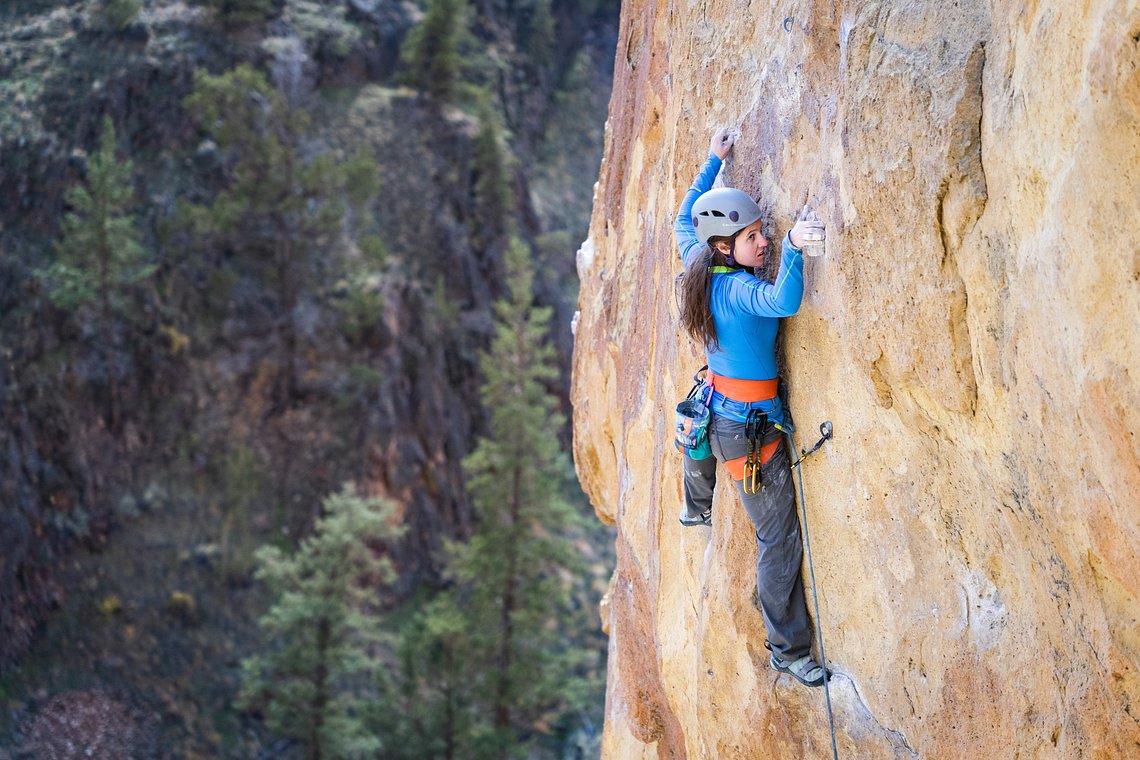
 by Julia Clarke
·
Thu 8 Dec 2022
by Julia Clarke
·
Thu 8 Dec 2022
First published at Advnture by Julia Clarke
There’s an age-old rumor that’s been circulating in rock climbing circles for years, which says that being tall makes you a better climber. Tall climbers, after all, usually have longer arms and legs, which means that they can reach for a hold with their hands and feet and incur less risk of falling, while using less power, which means that each route will be easier for them to send. Short climbers, on the other hand, may have to use several moves to complete the same section, which expends more energy, and may have to move more explosively to complete a move that’s merely a reach away for their taller colleagues. So being tall is a definite advantage in climbing, right?
Well, not so fast. The three women who made the podium for sport climbing at the 2021 Olympics – Janja Garnbret (5’4”), Miho Nonaka (5'4”) and Akiyo Noguchi (5’6”) – have an average height that is just one inch taller than the average US woman and two inches taller than the average UK woman. You’d barely describe any of them as particularly tall. Then you’ve got the men in the same competition – between them, Alberto Ginés López, Nathaniel Coleman and Jakob Schubert have a combined average height of 5’9'', which is the average height of a US man and an inch shorter than the average man in the UK. So, not tall then.
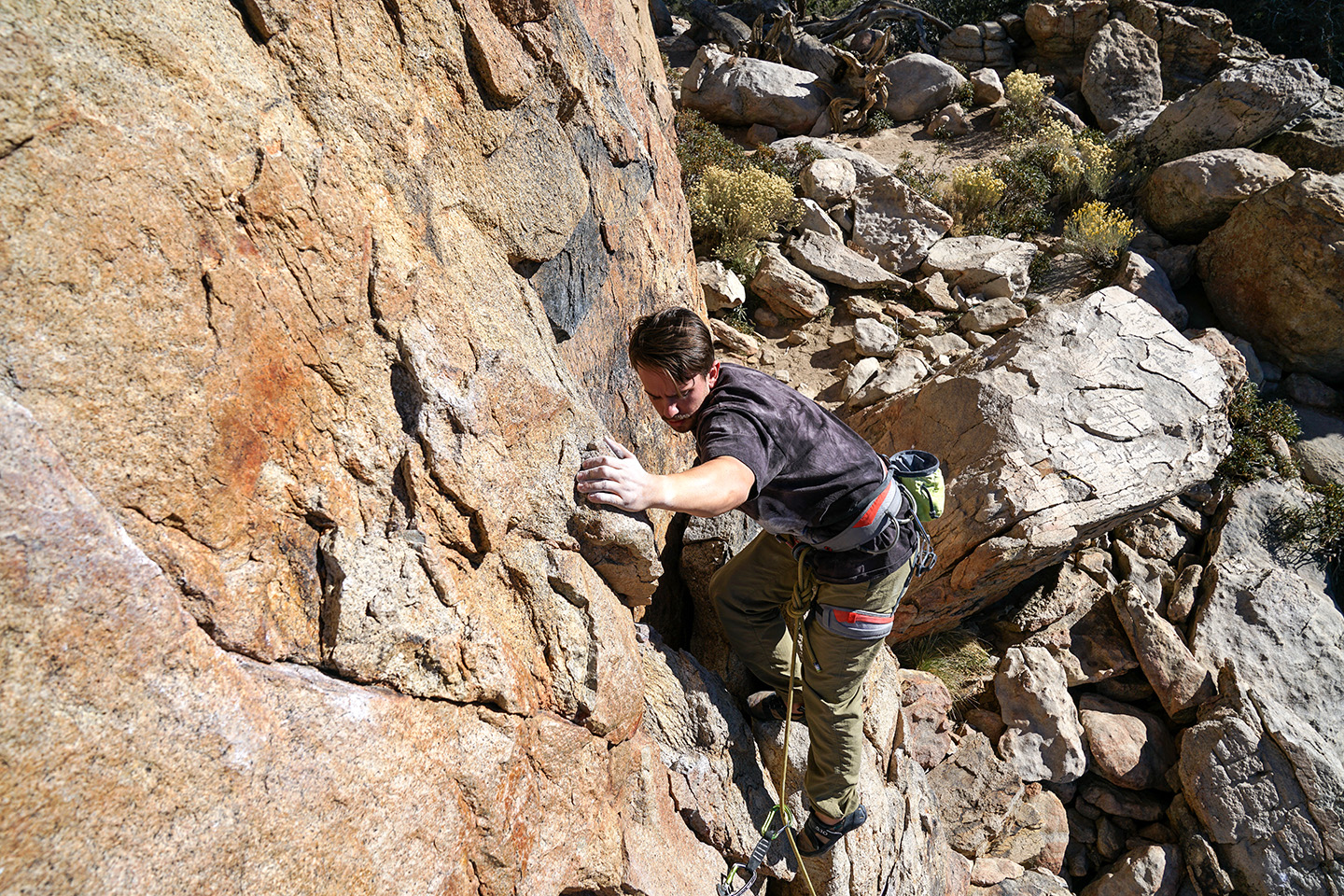
Does being tall make you a better climber?
So is it really true that being tall gives you an advantage in rock climbing? Of course, this is a very small pool of climbers from one competition, and statistical glitches happen all the time, so we decided to speak to some professional climbers to get to the bottom of whether this idea is grounded in reality, or merely a myth. We started by chatting with filmmaker Xavi Coll who leads climbing expeditions as CPO of the Glasgow-based company KooKoo Climb.
“This is an interesting question, since many times we tend to think that height is an advantage (which it is in many ways), but it is something that doesn’t really have anything to do with your grade. See, for example, climbers like Ramon Julian Puigblanque, one of the first climbers in the world to send mythical routes such as La Rambla.”
For reference, La Rambla is a historic 9a+ graded sport climbing route in Catalonia, and the Spanish climber in question is 5’3” tall. We probably don’t have to include here that 5’3” would be classified as pretty short for a man in most places, including Puigblanque’s native Spain. Certainly, being tall can give you some advantages as a climber, but as far as Coll is concerned, that’s largely on specific routes and in certain types of rock climbing.
“On some routes, height is an advantage, because for some climbers what is a dyno step for someone taller is simply a static crux, which requires less effort and is easier to send. For this and other reasons, I would consider being taller an advantage if we are talking about sport climbing above all. However, this doesn't mean that shorter people can’t be world-class climbers.”
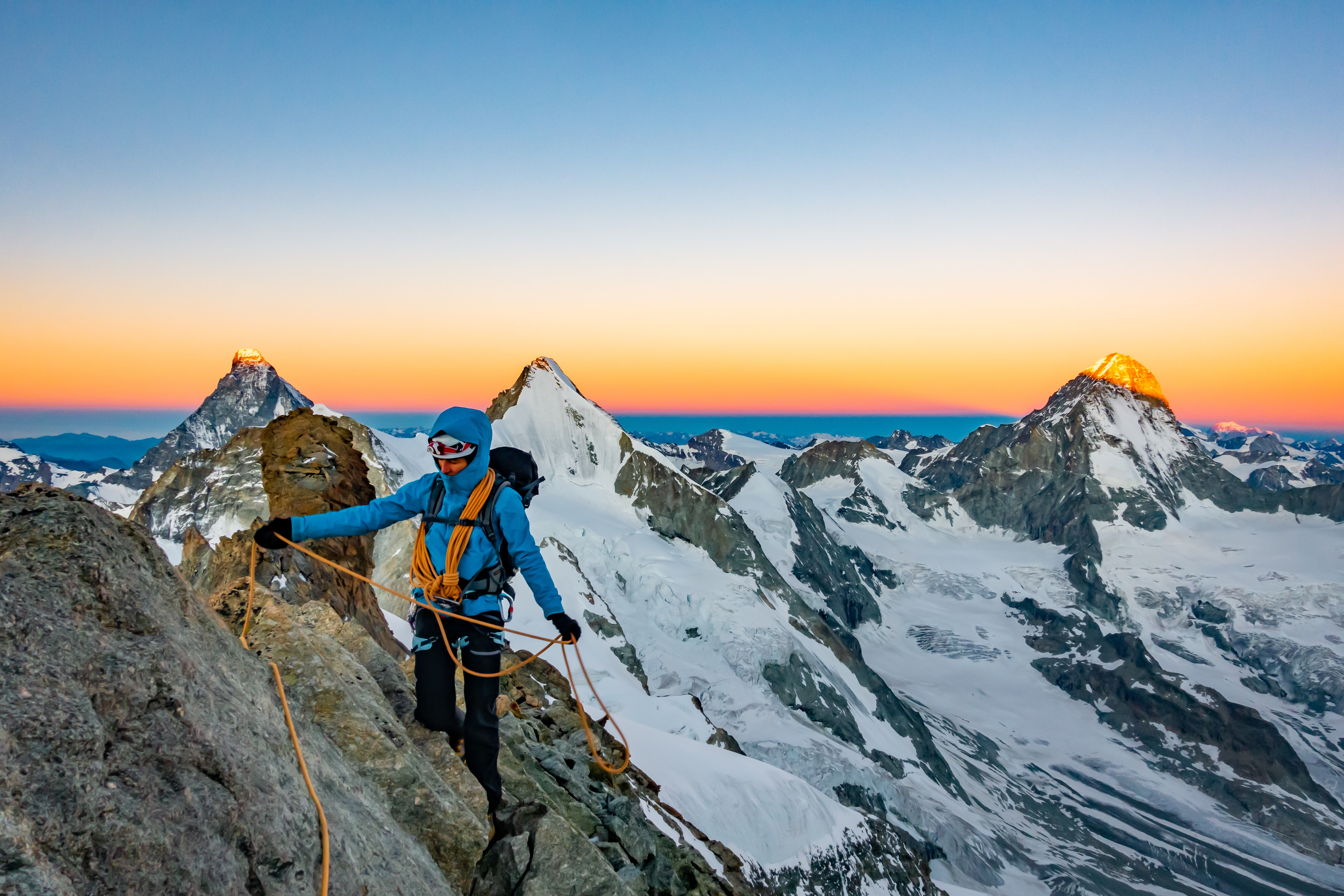
Take ice climber and dry-tooling champion Emma Powell, for example. Powell is ranked first in Britain for ice climbing and stands at (almost) 5’2” tall. She recently became the first British woman to climb a D12 route, on Guardians of the Underworld in May 2021. Though she admits to us that it would be nice to be able to reach some of the holds without trying so hard, her height has ultimately influenced how she trains and approaches a route rather than her success as a climber.
“I tend to not go for routes that are solely based on being able to do just big moves and I try to workaround, whether that means doing a figure four or putting my feet in a different place to most people or even finding a sneaky hole or something,” explains Powell, who has found that her height has forced her to train in a slightly different way to taller climbers in order to gain more explosive power and include more strength training so she can hold deep lock off positions.
“At the end of the day it just means that I have to get stronger and try even harder than everyone else.”
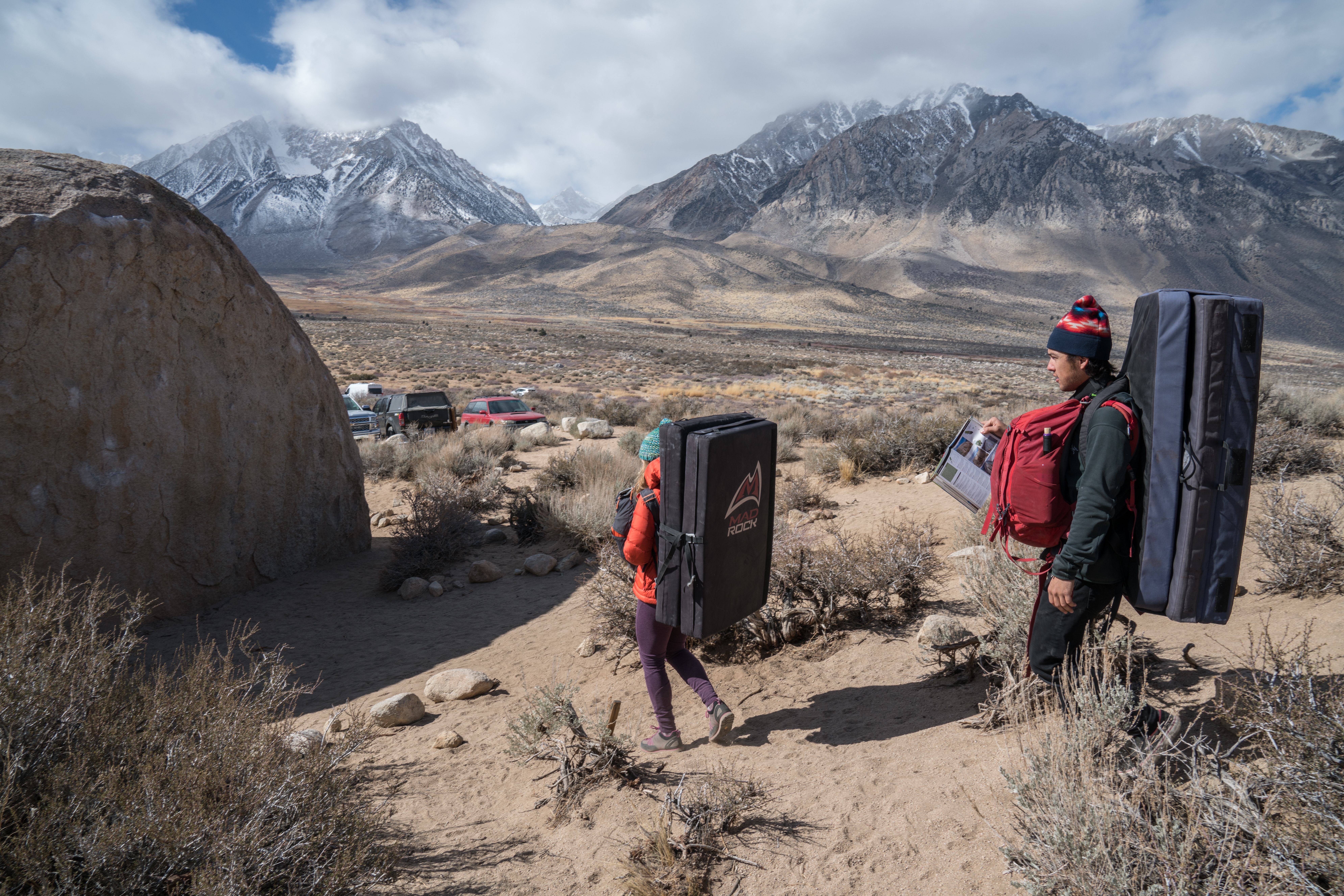
Is it harder for short people to rock climb?
On certain routes and moves, being shorter can be a disadvantage, but if you’re tall, there's another factor to take into account that might actually be a snag – and that’s the fact that there’s simply more of you to haul up that wall.
“The height of a climber is a relative advantage, since normally a tall person tends to weigh more than a shorter one, so it also increases the body mass with which you work,” says Coll, and that can mean that a tall rock climber may need to work harder to secure adequate nutrition to maintain their body proportions, which he says is the most indicated factor for height to be advantageous.
Meanwhile, although you might feel a little disheartened at the thought of having to train and try harder than your taller buddies, being a shorter climber might actually offer you the upper hand in terms of your mobility, according to Coll.
“Being shorter also generally offers more dynamism and agility, less body weight to work with, and lightness. You can be as competitive being short as being tall,” speculates Coll, who points to the following examples of world-class climbers who fall well under any common definition of tall:
- Sean Bailey (5.3 ft)
- Sascha Lehmann (5.4 ft)
- Kai Harada (5.5 ft)
- Brooke Raboutou (5.2 ft)
- Laura Rogora (5.0 ft)
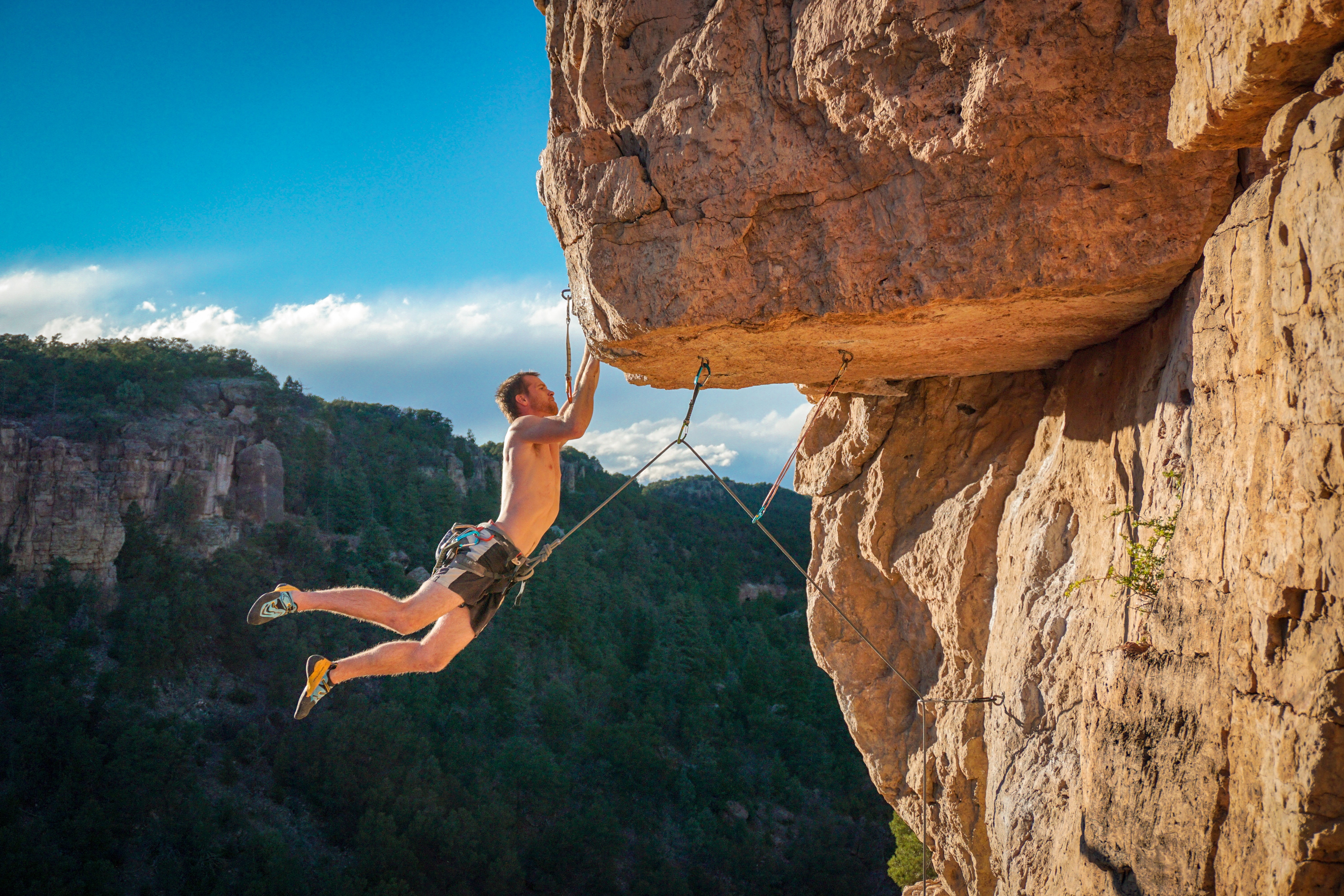
Photo credit: Devon Dennis
Does your height really matter in rock climbing?
Of course, you might be interested in a style of climbing other than sport, and Coll also argues that in styles such as trad climbing and mid-grade multi-pitch climbing, the supposed gap between short and tall matters even less because the routes tend to be less demanding anyway. Ultimately, however, the short answer is that whatever type of climbing you’re interested in trying, you shouldn’t let your height be a deciding factor.
“I really don't think height is a factor in competitions, so I wouldn't advise anyone who doesn't have a certain height to not compete because of that fact,” says Coll, who points to other factors that will matter much more to your success as a climber such as training, proper diet, flexibility (which you can improve with yoga for rock climbing), motivation, experience and whether or not where you usually climb best suits your morphology and style.
“Climbing is a very complete and universal sport, people with different bodies can find their style within the sport, whether it is sport climbing or trad climbing. You simply have to follow your instinct and climb the style that fills you the most and makes you enjoy the most.”
So that settles it then. Your height might make a difference to how you climb, but it doesn't predict or prevent your performance. Time to pick out some new climbing shoes, choose a climbing harness and hit the crag.


